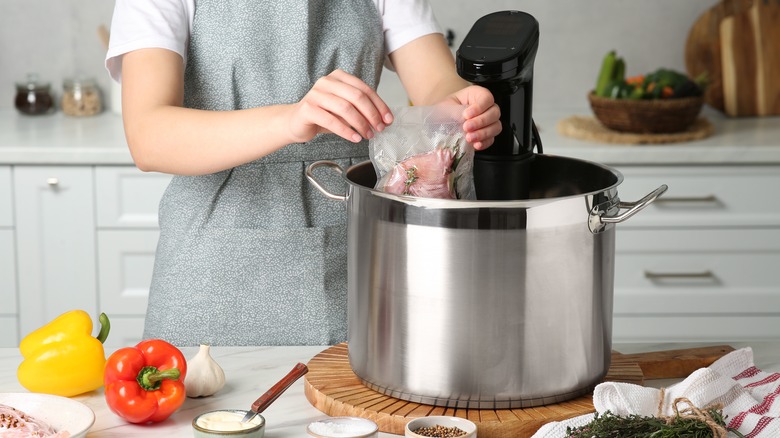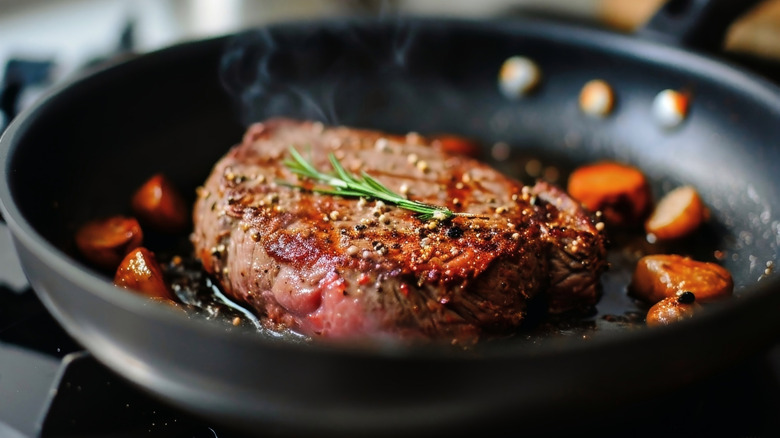The Big Sous Vide Mistake That Leaves Your Food Tasting Unfinished
Using the sous vide method is a great way to ensure your food is well cooked, but the truth about sous vide is that you're not actually done cooking after you've plucked the airtight bag out of the temperature-controlled water. While there are some mistakes that everyone makes with sous vide cooking – like not fully submerging food or using the incorrect bags — John Warr, executive chef at Radisson Blu Mall of America and FireLake Cocktail Bar & Grill, tells us that the major thing folks forget to do is give their goodies a little post-sous vide sear.
"The biggest mistake people often make is not searing the food after cooking," Warr explains. "Sous vide will cook your food evenly but won't develop the Maillard reaction (the browning that happens when food is seared at high heat)." When the sugars and proteins in our food come into contact with heat, they undergo several chemical reactions. This, in turn, creates new smells, flavors, and textures that we just can't seem to stop drooling over. Without the Maillard reaction, many of your sous vide foods just fall short.
Make it tasty, make it pretty
While the Maillard reaction can certainly occur in vegetables — turning sticks of potatoes and the tips of asparagus gorgeously crispy — chef John Warr of FireLake Cocktail Bar & Grill points out that it's especially important for cooking meat. "[Searing] is critical for adding flavor and texture, especially for meats like steak, chicken, and pork," he notes. For many meat lovers, the goal is to get the perfect crust on their steak. However, when meat comes straight out of the sous vide cooker, it typically looks smoother, lighter in color, and a little less appetizing than you'd expect.
"To avoid this," Warr instructs, "always finish your sous vide proteins with a quick sear in a hot pan, under a broiler, or with a kitchen torch. Just a minute or two on each side will give you that rich, flavorful crust." Searing your meats not only improves the taste and texture but also gives the dish more visual appeal and improves the overall dining experience.

